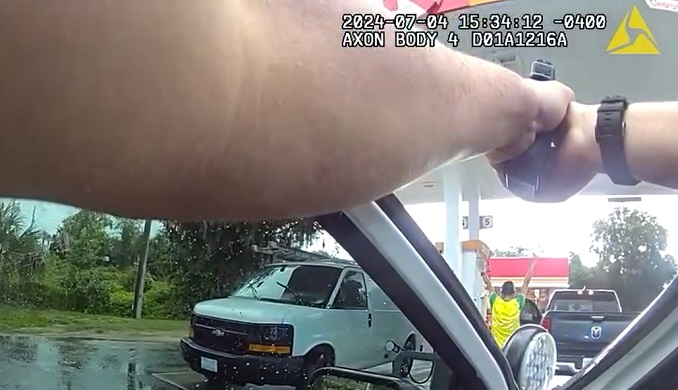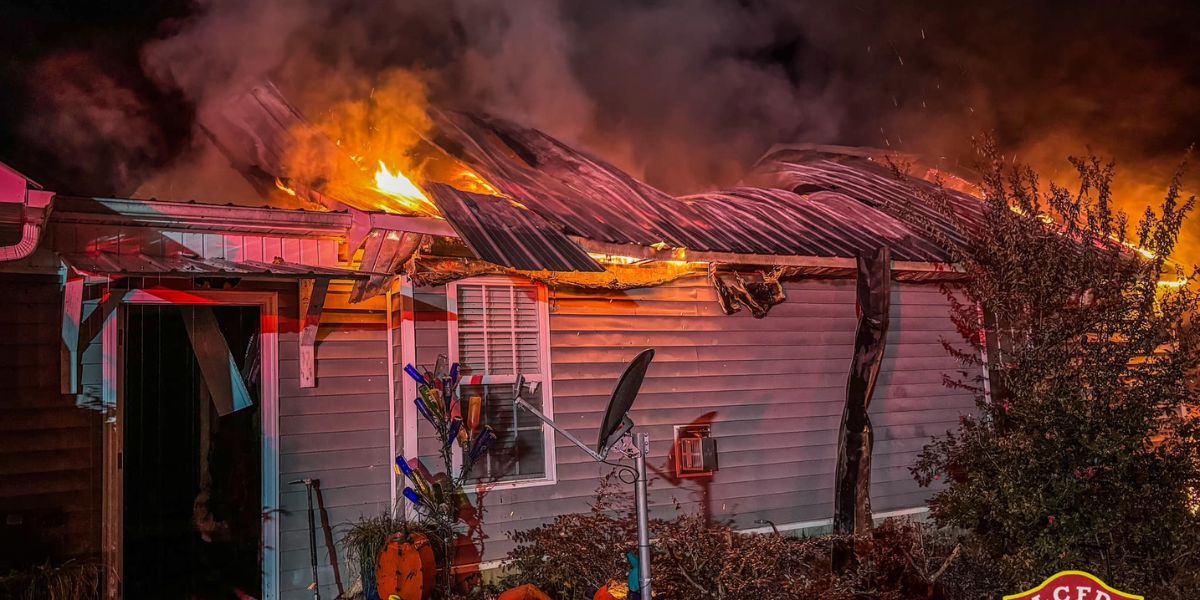Justice or Injustice? Colorado Man Faces 60 Years for Fatal Fire
On Friday, a Colorado man pled guilty to murder charges for causing a 2020 house fire that killed five members of a Senegalese family in retaliation for a stolen iPhone that he wrongly tracked to the house.
Kevin Bui, now 20, was a teenager at the time of the fire but was charged as an adult. Prosecutors have presented him as the ringleader of three pals who set fire to a Denver neighborhood in the middle of the night on August 5, 2020. Bui mistakenly assumed that those who had previously robbed him lived in the house after using an app to track his stolen iPhone in the general vicinity, according to prior evidence in the case.
Bui has pled guilty to two counts of second-degree murder. A plea agreement negotiated between the defendant and prosecutors suggests a sentence of up to 60 years in prison, including 30 years for each offense. Each count of second-degree murder carries a maximum sentence of 48 years and a $1 million fine.
- Auto Insurance Shopping Rises in Response to Soaring Insurance Rates: Report
- Avoid These 7 Missteps When Refinancing to a Lower Mortgage Rate
- Rising Home Prices Amid Slight Mortgage Rate Dip: Analysis
- Fresno County’s Groundbreaking Initiative: $500 Monthly Payments in New Guaranteed Income Program, Here is Who is Eligible
- Unlocking Financial Freedom: 5 Reasons to Opt for Personal Loans in Credit Card Debt Repayment
Judge Karen Brody scheduled sentencing for July 2.
Bui was seated at the table with his lawyers during the hearing, his hands tied in front of him and dressed in a green jail uniform.
- Will Everyone Get a $12,000 Stimulus Check in 2024? Find Out Eligibility
- $6400 Stimulus Checks in 2024: What You Need to Know About Eligibility and Payment Dates
- IRS 4th Stimulus Check 2024: Comprehensive Guide to Eligibility and Payment Dates
- 3 Smart Moves to Make Once Your Savings Reach $50,000, Here Are Crucial Actions to Take
- 3 Effective Ways to Pay Off Student Loans on a $50K Salary or Less, Know Here!
He gave brief responses to the judge’s inquiries as his parents watched from the court gallery and listened to the proceedings via headphones transmitted by an interpreter. Following the hearing, Bui’s father told reporters that they had accepted the plea offer.
Bui is the last of three friends to file a plea in the fire that killed Djibril Diol, 29, Adja Diol, 23, and their 22-month-old daughter, Khadija Diol. Their relative, Hassan Diol, 25, and her 6-month-old daughter Hawa Beye were also dead. Three more people fled by jumping from the second story of the house, breaking several bones.
The victims’ relatives were not present in court, but they followed the proceedings online, according to Ousman Ba, program coordinator of the African Leadership Group and spokesperson for Djibril and Adja Diol’s families. He also speaks with Amadou Beye, whose wife and daughter had been slaughtered.
The families approved the compromise, despite their initial desire to see Bui condemned to life in jail with no chance of parole, according to Ba. It is the harshest sentence attainable in Colorado since the capital penalty was abolished, and it is the mandatory punishment for a first-degree murder conviction. However, because adults who commit crimes as juveniles are treated differently and granted parole, the families decided that this plea agreement was the best way to end this matter after nearly four years, he explained.
“We are Muslim. “We believe Allah, our maker, will serve justice,” added Ba, who thanked prosecutors for keeping the families updated on the situation.
Bui pleaded guilty to one count of second-degree murder for the deaths of Dijibril and Adja Diol, as well as their child. The other is for killing Hassan Diol and her child. Prosecutors dismissed 60 other charges against Bui, including first-degree murder, attempted murder, arson, and burglary, as part of the plea deal.
Dillon Siebert, who was 14 at the time of the fire, was sentenced last year to three years in juvenile imprisonment and seven years in a state prison program for young convicts. He pled guilty to second-degree murder in a compromise that prosecutors and the defense said balanced his minor role in plotting the fire, his regret, and desire for rehabilitation with the horror of the crime.
Gavin Seymour, 19, received a 40-year jail sentence in March after pleading guilty to one count of second-degree murder.
Seymour and Bui pleaded guilty following an unsuccessful attempt to have the internet search history data that led to their arrests thrown out.
The fire investigation took months and yielded no leads. Three individuals were seen in surveillance video wearing full-face masks and dark hoodies. Fears that the burning was a hate crime prompted many Senegalese immigrants to install security cameras in their homes in case they were also targeted.
Without anything else to go on, authorities eventually got a search order from Google, asking for the IP addresses of anybody who searched the home’s address within 15 days of the fire. Five of the IP addresses discovered were located in Colorado, and investigators obtained the names of those individuals through a separate search order. After researching those individuals, authorities identified Bui, Seymour, and Siebert as suspects. They were arrested around five months after the fire.
In October, the Colorado Supreme Court upheld a search of Google users’ keyword history, which critics have described as a digital dragnet that undermines people’s privacy and constitutional protections against excessive searches and seizures.
However, the court noted that it was not making a “broad proclamation” about the legitimacy of such warrants and that it was just ruling on the facts of this particular case.











